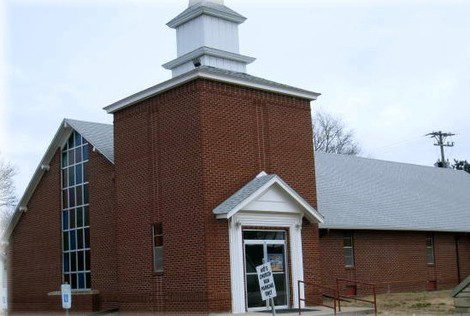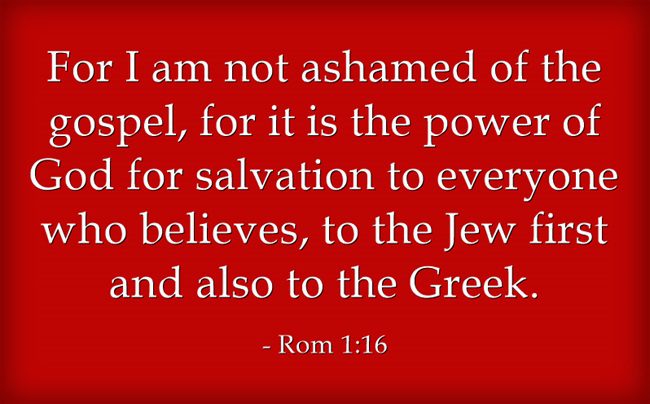Why do some churches close while others flourish? Why do churches die or close their doors?
Church Closings
Churches close every single day in this country, and even though some have been around for over a century, like our church has, some end up closing their doors, or they simply fade out of existence due to irrelevance, population shifts, societal changes, corrupt church leadership, and sometimes it’s no one’s fault at all. Churches are like human beings. They are born, they live, they thrive, and then they die, but it’s not the end of the world. Those who must go on to another church will still be in the church, meaning they are members of the universal Body of Christ, because the church is not composed of brick and mortar. It is made up of flesh and blood beings, whose only qualification for joining the church is to be a sinner. If a person doesn’t admit they still sin after conversion, then that’s something that they will have to take up with God (1st John 1:8, 10). It’s important to recognize that the church contains both sinners and saints. They are each and both at the same time. A church that is healthy has a biblical view of self (Rom 3:10-12, 23), but also of the Savior (Mark 10:45).
Urbanization
The movement of agricultural jobs to industrial or service jobs has caused an emptying of the bread basket regions. As jobs go, so go the people, and when the jobs began to shift to the cities after the Industrial Revolution, the majority of the population went with them. That has led to an urbanization of America. Many small town stores began to closes down because the cities had larger stores at lesser prices. This shrunk the smaller towns even more, and some simply disappeared because those local stores that were closed had provided jobs for the local population, so at least the small town could have survived, but when those jobs were gone, so was the town. That’s why some churches closed. The people left so churches were left with no support, however the churches in the city and urban areas began to grow due to this shift in population. What this means is that even though the local church buildings were closed, the churches weren’t. The members just moved somewhere elsewhere, but in those members, that church is still there.
No Missions or Purpose
Church leaders and members must ask themselves, “Why would God keep a church alive that does not preach the Bible and does not evangelizing?” I can’t come up with a good answer to that, but churches that do not “Go!” (Matt 28:18-20), typically do not grow. Churches that don’t rely on expository, verse by verse preaching, for the most part, neglect to unleash the power that is in the gospel. The Apostle Paul wrote, “For I am not ashamed of the gospel, for it is the power of God for salvation to everyone who believes, to the Jew first and also to the Greek” (Rom 1:16), and even though “the word of the cross is folly to those who are perishing, but to us who are being saved it is the power of God” (1st Cor 1:18). I remember a young associate pastor in training for the pastorate asking me, “How do I come up with sermons?” to which I said, “I hope I never come up with a sermon…I pray it is God Who comes up with one for me to preach. “ One thing I told him to rely on was the Word of God. Paul told Timothy to make friends and influence people….no, wait, Paul actually told Timothy to “preach the word; be ready in season and out of season; reprove, rebuke, and exhort, with complete patience and teaching” (2nd Tim 4:2). Undoubtedly he will (as I have) step on a few toes, but before the Word cuts those who hear it, it cuts me first…and it cuts me to the bone, so the Word must be preached. That is the purpose of the church…to grow them in holiness…to proclaim the gospel…and above all, to glorify God and enjoy Him forever.
Systemic Sin
When a church begins to look the other way when there are members within the body living in serious sins, such as adultery, corruption, drunkenness, drug abuse, violence in the home, or any other such thing as these, then that church has failed to follow Jesus’ admonition for church discipline. In Matthew 18 we read about the church for the very first time and it’s in regard to church discipline. Jesus said if a brother or sister sins against us, go to them in private, and if that doesn’t’ work, take one or, at the most, two more with you. If this doesn’t work, it’s to be brought up before the whole church, disfellowshipping them if necessary (Matt 18:17), but doesn’t that seem a bit harsh? No, besides these are Jesus instructions and not His suggestions. The truth is, only a little bit of leavening will leaven (or infect) the whole lump (the body), so imagine what a lot of leavening would do? Of course, we all fall in many ways and still sin after conversion, but if a believer is living in sin and doesn’t repent of that sin, they church must step in…for the good of the Bride (the church) and for the good of the person who refused to hear the church. The hope is they will come back in humble repentance and confess this to God.
The Sacraments
The sacraments are an essential part of the local body, so when churches begin to minimize this or even stop partaking of it, they are losing a valuable work that the sacraments have upon the Body of Christ. The sacraments remind us of our sinful state, of the enormous price that Christ paid, and that Jesus shed His blood and sacrificed His body for us, even while we were His enemies (Rom 5:10). The body and bread are tied to the Bread of Life, Jesus Christ, and are somber reminders of the Passion of our Lord Who as battered and bruised so that we might receive spiritual healing, or the forgiveness of sins. The wine (or juice) and the blood remind us that without the shedding of blood, there is no remission of sins, and without Christ’s shed blood, there is no removal of our sins and there is no eternal life but only a fearful expectation of eternal death.
Conclusion
We are commanded to not forsake the assembling of ourselves, because we’re going to need one another as Christ’s return draws near (Heb 10:24-25), but the church is not a building or a denomination. It’s the Body of Christ and it’s composed of individual members, placed within the Body as it seems good to Him. It’s not a matter of the human will or a choice of the flesh, but of God, Who alone calls and places whom He chooses. When a church is full of “pew potatoes” that don’t evangelize, they will fossilize. And churches must deal with sin issues, not trivial matters, but things where a person is sinning against their own body (1st Cor 6:18), and they must not forsake the sacraments, which remind us of the ultimate price God paid and that was the Son of God dying for the children of God and for the glory of God.
Article by Jack Wellman
Jack Wellman is Pastor of the Mulvane Brethren Church in Mulvane Kansas. Jack is host of Spiritual Fitness and also the Senior Writer at What Christians Want To Know whose mission is to equip, encourage, and energize Christians and to address questions about the believer’s daily walk with God and the Bible. You can follow Jack on Google Plus or check out his book Teaching Children the Gospel available on Amazon.













